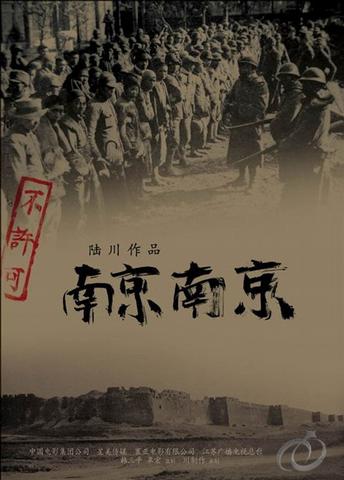
by Zahirah Suhaimi
The recent controversy sparked by Chinese film, City of Life and Death by director Lu Chuan, has compelled me to mull over the challenges with establishing a universally accepted perception and use of the freedom of expression. In allowing alternative views and creative opinions, can we ever find a way to manage the precarious balance between censorship and sensitivity?
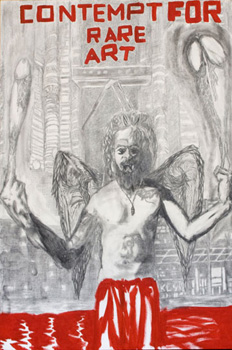
by Rahmat Haron
Aku peduli apa. Inilah jalannya Art of desperation! Inilah titik masuk ‘entry point’ yang akan membawa berbagai kehadiran, beragam kemungkinan dan berencam kebarangkalian ke ruang pemerintahan (dominion) SENI atau keakraban masyarakat SENI atau ekonomi SENI atau politik SENI atau sebab musabab SENI atau asas kewarasan SENI atau agama SENI atau kegilaan SENI – bagaimana dan apapun yang ingin difahami.
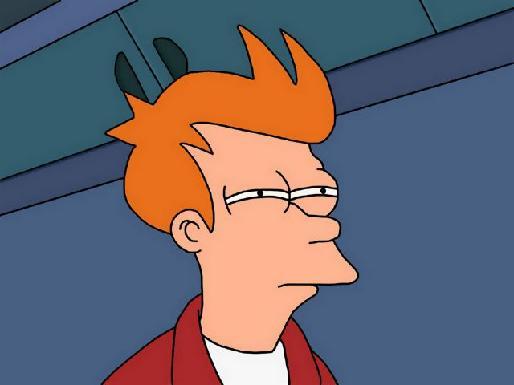
by Wong Hoy Cheong
A little background: I was rather excited by the polemics and arguments that emerged from Simon Soon’s review of Marion D’Cruz’s performance lecture. While I might not agree with many of the things said, they nevertheless were invigorating and challenging, especially when polemics in the discussion on art and culture are rare and few.
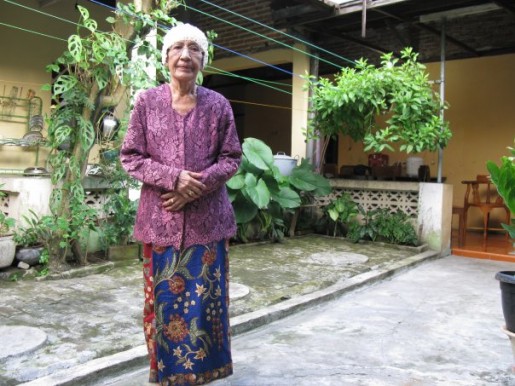
by Yin Shao Loong
In conjunction with last weekend’s Art for Grabs fair at the Central Market Annexe political scientist and historian Farish Noor delivered another of his occasional lectures on Southeast Asian history. This time on ‘Batik as a Trans-Cultural Signifier.’
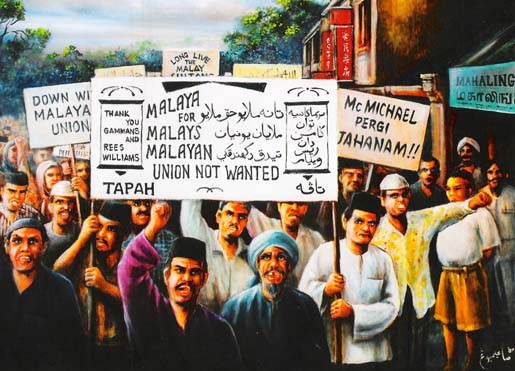
by Zedeck Siew
Finding myself at a loss one afternoon during the Umno general assembly, I decided to take a stroll through PWTC. I passed the entrance to Merdeka Hall, where speeches and sycophancy continued, rounded the corner – and, lo and behold, discovered a painting exhibition.
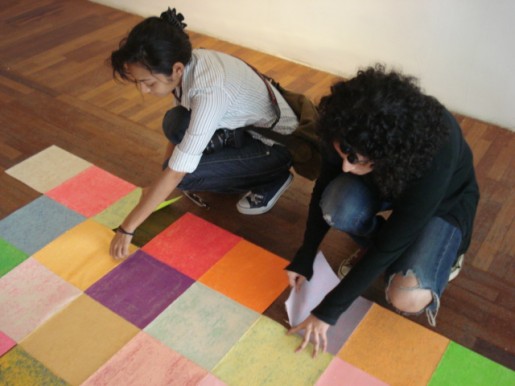
by Haseena Abdul Majid
Haseena joins Mit Jai-Inn last Saturday as one of his guest audience for his 12 hour long social performance. These are notes and impressions from her participation

by Simon Soon
The Voyage To The Ends Of The World is an internalisation of the mythical heroic journey (think Joseph Campbell’s idea of the monomyth), using the photographic medium to convey the emotional weight associated with an abstract passage towards self discovery.
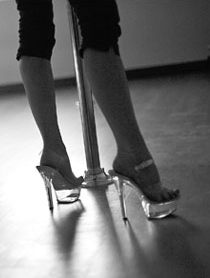
by Bilqis Hijjas
Some things are so entrenched in popular consciousness as practices that demean and objectify women that no degree of revisionist history can erase the taint. So it was with some trepidation that I went to see my friend Canela teach her pole-dancing class at the recent open day of Dancespace Ampang.
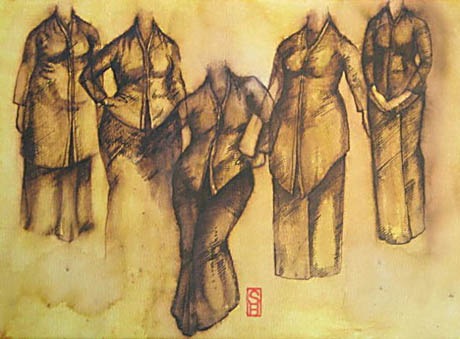
by Sharon Chin
Catching Sculpture Studies: 3d to 2d at Pelita Hati House of Art reminded me of how fundamental the process of drawing is to all disciplines. The exhibition collects together a big range of drawings, or studies, from contemporary Malaysian sculptors. The idea of the exhibition itself must be commended. Compared to painting, much less attention has been given to Malaysian sculpture.
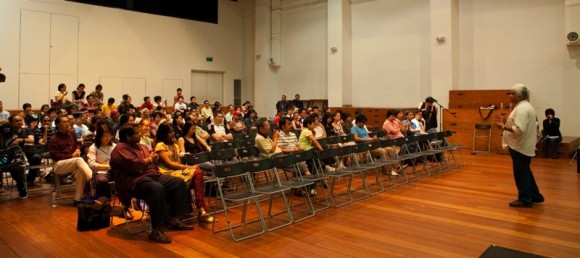
By June Yap
May Day 2009 saw an unexpected sort of situation, one that in a way has been spurred by the government who on April 6 announced in the state paper that submissions of nominations to the government for Nominated Member of Parliament (NMP) may be made by the people.
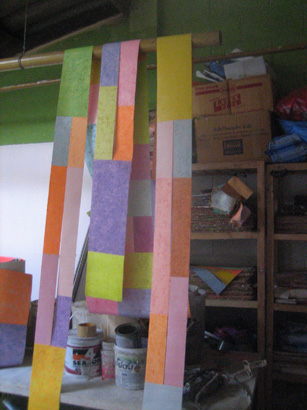
by Simon Soon
Mit Jai-Inn’s work is conscious about the history of painting in many ways. In a sense, there’s the utopian gesture that is paradoxically embedded in the destructive system of Mondrian’s oeuvre that Mit is unafraid to reference, using this goal as a way to explore a reductive style that transpires the nihilism of minimalist art and its subsequent absorption into high style furnishing.
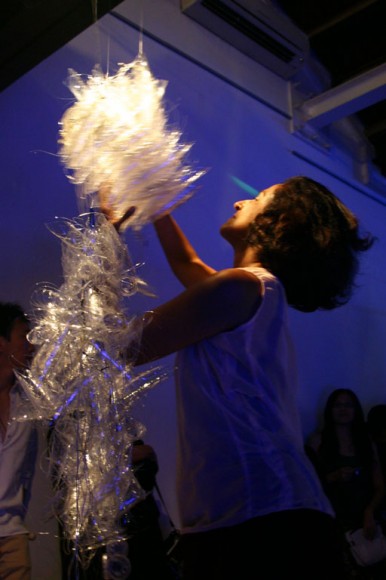
by Bilqis Hijjas
Most dance productions have to be seen in person. No video, no matter how accurately captured and carefully edited, can compare with the ability of the human eye to encompass the width of the stage in one instant, then hone in to focus on the swivel of an eyeball in the next. That said, there are a few occasions when watching a dance production in person is so frustrating and uncomfortable that a video comes as a welcome blessing. ”Seven Skins’ at the launch of The Light Show at the Annexe Central Market was one such instance.
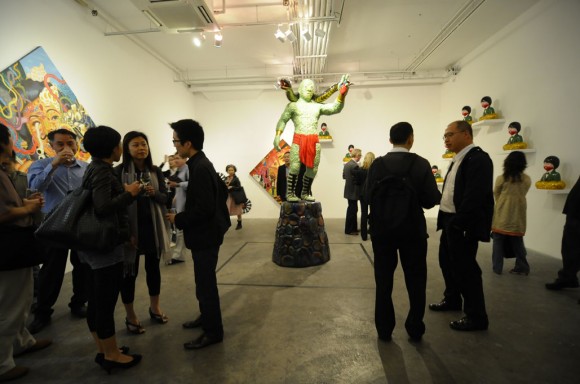
By Eva McGovern
From February – May 2009 Ossage Gallery, Kwun Tong, Hong Kong is presenting Some Rooms, an exhibition that is a slice of contemporary art from Southeast Asia. 5 Curators were paired with two artists (selected by Ossage) each from Thailand, Singapore, Malaysia, Indonesia and, (strangely in my mind) Hong Kong. I had the opportunity to work as one of the curators, and managed to learn an incredible amount about curating, about creating meaning, about categorising artists by nationality and the challenges of representation.
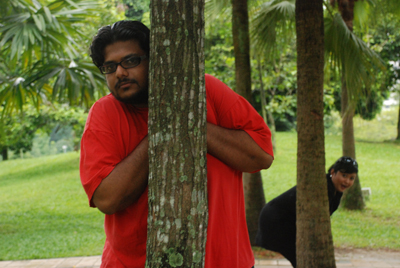
by Yin Shao Loong
Amir Muhammad’s Malaysian Gods (MG) offers an amalgam of two strands of Malaysian life. The first being a history of the genesis of Malaysian reformasi relayed in English text. The second is interviews in Tamil or Tamil creole with a variety of Tamil speakers. Like an amalgam these two strands have different properties but are nonetheless juxtaposed in the hopes of exerting a useful effect on each other. Street politics is matched with life from the streets.
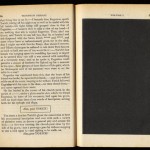
by Lydia Chai
There is a famous moment in Laurence Sterne’s eighteenth century novel, The Life And Opinions Of Tristram Shandy, Gentleman, when the character Yorick dies and we the readers are then confronted with an entire black page.
This odd literary device might elicit laughter and amusement because of its simplistic representation of death, darkness, and fear of nothingness.
We might also think it poignant that the story’s long-winded narrator, Tristram, finds himself at a sudden loss for words and can only express his grief with a silent, dark page.



 | Filed under:
| Filed under: 












